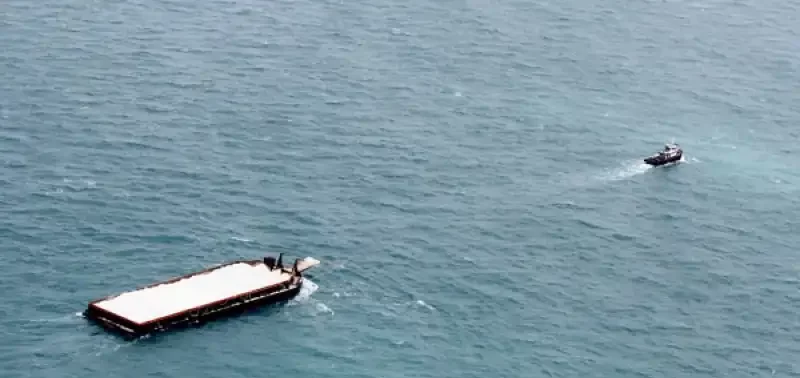Harming Fishermen
KNTI also regrets that this PP does not mention fishermen and cultivators who are potentially affected by the activities of utilizing sea sand, both in the consideration and the articles in it.
“Fishermen and cultivators are foreign and unknown vocabulary in a regulation that is actually very close to these two actors,” he said.
KNTI DPP Chairperson for Advocacy and Fisherman Protection Misbachul Munir said that ecologically, sea sand mining can increase coastal abrasion and coastal erosion, reduce the quality of marine and coastal waters, potentially increase coastal pollution, and reduce seawater quality by increasing seawater turbidity.
Sea sand mining can also damage fish spawning areas and nursery grounds, damage mangrove ecosystems, and disrupt aquaculture land, change sea current patterns that have been understood from generation to generation by coastal communities and fishermen, to vulnerability to disasters in fishing villages.
“Damage to ecological carrying capacity due to the utilization/mining of sea sand will disrupt the economy of fishermen and coastal communities. Among them are the decline in fishermen’s income, higher operational costs for fishing, and restrictions on access and passing in the sea sand mining area, to the loss of fishing locations for certain fishermen, such as pertorosan or tadah arus fishermen in Surabaya,” said Misbachul.
Read more: 296 Indonesian Couples Participate in Itsbat Nikah at The Indonesian Consulate in Tawau
